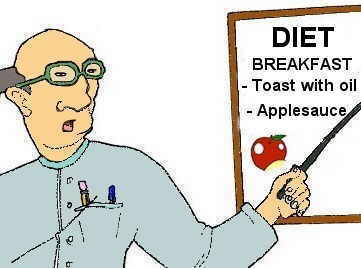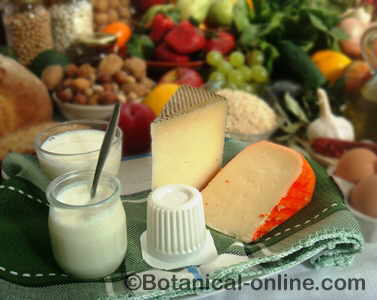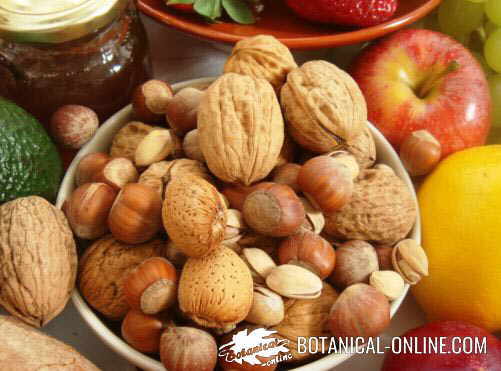Contents
- 1 Milk in autoimmune and intestinal diseases
- 1.1 Is milk recommended when there are intestinal diseases?
- 1.2 The biggest problem is not lactose milk, it seems to be the homogenization
- 1.3 Eliminate milk and dairy products is not a treatment
- 1.4 If I decide to take milk, how do I do?
- 1.5 Is it necessary to take milk?
- 1.6 If you do not drink milk, do you have more risk of osteoporosis?
- 1.7 Where do we get calcium from if we remove milk?
- 1.8 Is Yogurt a good probiotic?
Milk in autoimmune and intestinal diseases
Is milk recommended when there are intestinal diseases?
The consumption of milk and dairy products is a point discussed in the case of certain intestinal and autoimmune diseases.
Some studies have observed an improvement of symptoms by removing dairy in people with celiac disease (gluten allergy), autoimmune diseases, lupus, multiple sclerosis and Crohn’s disease.
One of the best known cases is The Wahls Protocol, a book written in first person who tells how Wahls doctor, diagnosed with multiple sclerosis, improved by removing dairy from their diet, among other major changes.
In these cases, you may look for a dietitian or doctor advise temporarily to remove dairy from the diet and see if there are improvements in these diseases.
The biggest problem is not lactose milk, it seems to be the homogenization

Intestinal diseases require medical and dietary treatment
On the other hand, it seems that the biggest problem is the homogenized milk and dairy products. Homogenization is an industrial process used to stabilize the milk, wherein the components are broken into smaller molecules, to obtain a whiter and smoother (homogeneous) milk. After this process, Milk is applied to a thermal treatment that is able to eliminate bacteria and keep under control pathogens in milk.
When the intestine is damaged, such small molecules achieved with the homogenization can cross the intestinal barrier, causing immune reactions. These effects do not apply to people without intestinal diseases.
The intestine may be damaged when there are intestinal diseases such as Crohn’s disease, ulcerative colitis, food intolerances, irritable bowel syndrome, chronic constipation or celiac disease. These diseases cause intestinal hyperpermeability, a reversible disorder (curable) can also occur in healthy people because of chronic stress, poor diet, or abuse of irritating substances (alcohol, tobacco, spicy food, coffee).
Milk also contains hormones and growth factors (needed to grow the calf), reason why it is not recommended in certain diseases such as cancer.
Despite these arguments, it is wrong to advise systematically remove milk from all diets. This recommendation does not have scientific support in all cases and it is often confused with a treatment or a solution to health problems that require a deeper or global attention.
Eliminate milk and dairy products is not a treatment

Dairy products
There is No need to eliminate dairy except for medical reasons. In case of autoimmune, inflammatory or intestinal diseases, it can be justified to remove milk, temporarily or permanently.
More dietary guidelines are necessary if what you want is to improve a disease. Therefore, these dietary changes must be made under the supervision of a nutritionist who works with your doctor.
Removing milk, alone, is not a suitable treatment and this will not lead to improvement in any disease.
If I decide to take milk, how do I do?
If you take milk, what we recommend is to choose a quality milk, fresh milk that is not homogenized, and from organic origin. Or better yet, yogurt with these same characteristics.
It is possible to maintain a balanced diet without dairy, but it is also true that the consumption of good quality milk and yogurt is not incompatible with a healthy diet.
Is it necessary to take milk?
It is not necessary to eat milk or dairy products for a healthy diet. The calcium content of milk can be found in many other foods rich in calcium.
If you do not drink milk, do you have more risk of osteoporosis?
There are no studies linking milk consumption with reduced risk of osteoporosis or bone diseases. In other words, milk does not protect against osteoporosis.
In most cases, bone diseases often have a multifactorial origin, and they are generally related to other factors, much more important and noteworthy that consumption of milk: genetic, metabolic diseases, vitamin D deficiency, menopause, sedentary lifestyle, smoking, excessive or inadequate diets such as too much meat…
Where do we get calcium from if we remove milk?
Calcium requirements increase with increased consumption of protein-rich foods. That is, if excessive meat is consumed, more calcium should be consumed.
In a healthy diet, with a balanced protein intake, it is not necessary to take 1,200 mg of calcium as recommended in some countries.
WHO states that daily calcium needs are 600-900mg. If you do not eat dairy, calcium can be obtained from foods such as sesame seeds, tahini, broccoli, cauliflower, beans, almonds, seaweed, etc., In addition to vegetable drinks enriched with calcium.
Is Yogurt a good probiotic?

Photo of yoghurt (probiotic) with strawberries (prebiotic).
Probiotic foods are those that contain healthy bacteria. Bifidus yogurt or miso are examples of probiotic foods. When we eat them, we sow our intestines of these microbes.
However, in case of intestinal diseases, it is advisable to take probiotic supplements because it is the only way to ensure sufficient supply of these bacteria (Lactobacillus and Bifidobacterium), because much of the bacteria of foods die in the stomach.
In addition, to support the growth of these bacteria in the gut, you need to give them food, which for them is the fermentable fiber of vegetables and tubers (prebiotic fiber).
Attention! Probiotics are contraindicated when certain drugs for autoimmune diseases are taken (Consult your doctor)
![]() More information on autoimmune disease diet and remedies.
More information on autoimmune disease diet and remedies.








